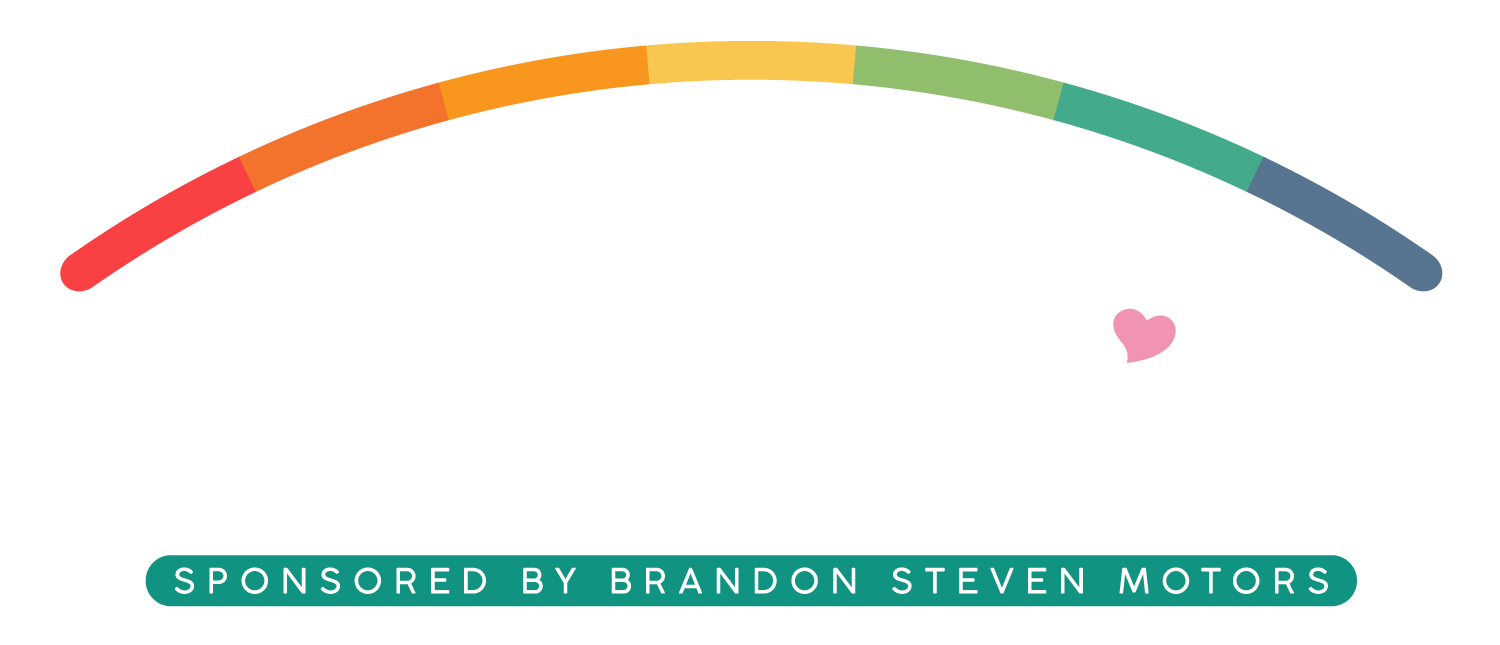Lived Experience
One word that describes Rob Scheer? Dad.
“I have the greatest title in the world. It’s the title of dad,” Rob said.
Rob grew up the youngest of ten kids. He described his childhood as one filled with frequent moves with his mother and siblings.
“My mother married six times,” Rob said. “My family and I lived in shelters in the Maryland, Virginia, and DC areas. During that time, I saw my siblings go in and out of the system.”
Rob Scheer is an author, US Navy veteran, and former banking executive. He established Comfort Cases, a nonprofit that provides youth in foster care with backpacks that are filled with essential care items. The CNN Hero is a father to five teens whom he and his husband Reece adopted from foster care.
At 12-years-old, Rob entered foster care.
“I went into the system carrying a trash bag,” Rob said. “But even with that experience at a young age, I decided I was not going to allow the system to define who I was going to be.”
He witnessed his siblings experience substance use disorders, incarceration, and teenage pregnancy. Not wanting the same for himself, he focused on getting an education and fitting in with his foster family.
“I did my chores without being asked,” Rob said. “Even though they didn’t have my picture on the mantle, they must have loved me since they allowed me to live in their home.”
But when Rob turned eighteen, his foster parents handed him a trash bag and said he couldn’t live with them anymore. He had just started his senior year of high school.
“They told me they wouldn’t be getting a check for me,” Rob said. “It was at this moment I realized I was truly a child in the foster care system.”
Rob shares that he became homeless after leaving his foster parents’ home.
He remained on the streets for the rest of the school year. At lunchtime, he would wait for his classmates to leave the cafeteria so he could dig through the garbage can for food.
“I wasn’t sure if I was going to have anything to eat that night,” Rob said. “I would often wish that someone would notice me, but they didn’t.”
Graduation day came. And like his classmates, Rob was proud to receive his diploma. However, when his name was called, no one clapped for him.
“At that moment, I realized that the trash bag that was handed to me in 1979 had done its job,” Rob said. “It made me feel disposable and that I didn’t matter. I didn’t return to my seat after I got my diploma. I left the auditorium.”
Retreating to the back parking lot of the school, Rob hoped that someone would come to find him. He thought it would be the teacher who brought him extra food. But no one came looking for him.
“I realized then I had three choices: give up, give in, or give it all that I got,” Rob said.
He chose to give all that he had. He enlisted in the United States Navy and later became a successful businessman. He eventually met Reece, his future husband.
Adoption came up when Rob and Reece discussed having a family.
“Reece asked me, ‘Why are we wanting to adopt overseas when we can adopt from foster care?’” Rob said. “I told him I never wanted to talk about that again [being in foster care].”
He said it was a light bulb moment when Reece told him he had to face his past. “I was so worried about what everyone else thought about me that I didn’t realize there were children in foster care who needed families.”
Reece and Rob began the process of becoming foster parents over the next six months. After being licensed, they had two six-month-olds, a two-year-old, and a four-year-old placed in their home. Their names are Amaya, Makai, Greyson, and Tristan.
“We became a family of six,” Rob said. “In fact, we were holding our babies when we got married.”
But their family wasn’t done growing! In 2019, Rob met an 18-year-old boy named Alex when speaking at his high school on a book tour. Alex was living in foster care at the time.
“He had been in and out of the system,” Rob said. “He told me he was just like me when I was in high school. He said he was going to end up homeless after he aged out.”
The two stayed connected. After four months, Rob asked Alex if he would like to move in with him and his family. In July 2023, Rob and Reece adopted Alex.
The Scheer family is multicultural.
Four of the Scheer’s children are African American with their fifth being white. He and his husband are both white. Rob says this is a significant reality in their lives.
“People would tell us how beautiful our family is. That they didn’t see ‘color.’ Only love,” Rob said. “I feel if you don’t acknowledge my children are of color, then you do not acknowledge their existence.”
Rob emphasizes the importance of making sure his children see themselves in the world. Whether that is taking them to a church where the congregation is predominantly Black or hanging up pictures of people that look like them in their home.
He added that there have been times when others have made remarks about his children having two fathers. He says his children are reassured they are loved.
“One of my son’s friends made a comment about him having two dads,” Rob said. “I told him not to ever feel ashamed or think he was anything less.”
Rob says education is paramount when understanding how foster care and adoption work.
“With foster care, reunification is always the goal. In a perfect world, there wouldn’t be a need for foster care,” Rob said. “It’s also important to educate yourself on how trauma impacts children.”
He says that when someone becomes a foster parent, they are impacting society by investing in a child’s future. After all, he explains, “Our children are the leaders of tomorrow.”
And when asked what he enjoys most about being a dad, he has a pretty good answer for that too.
It’s watching his children embody empathy in the world. “When I see my children volunteer at Comfort Cases, I can see the empathy flow out of them. As a parent, I can say I did my job. That’s all you ever ask for as a parent.”



